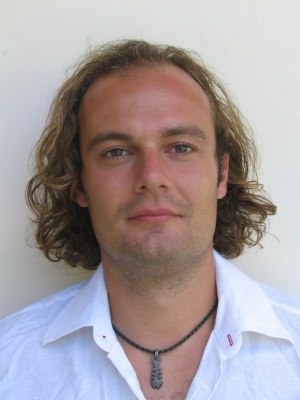Vfx vet Kevin Mannens tells us what distinguishes his new production-based online school for TDs from its competitors.

Kevin Mannens.
There's a new online school specifically aimed at getting students production-ready for careers as technical directors. TD-College (http://td-college.com) utilizes instruction and mentoring for the tough realities of CG production. The online school was formed by Rudy Cortes, a senior TD at Digital Dimension (Sky Captain and the World of Tomorrow); Mannens, effects TD at Sony Pictures Imageworks (G-Force, 10,000 BC and The Chronicles of Narnia: Prince Caspian); Erick Miller, a technical manager at Disney and former character technical supervisor at Sony Pictures Imageworks (Surf's Up and
BD: How are the classes structured?
KM: Each class is six weeks and consists of a very detailed video, normally two hours per week, so that's 12 hours of video total. Then a really detailed tutorial (20-30 pages per week) with pictures and screenshots. Each week, every student has a one-hour, one-on-one with one of the mentors. And it really is one-on-one. It's just the student and the mentor. So, imagine Russell Darling is your Python mentor; that would mean you would have weekly personal chats with a CG supervisor who has worked on every one of the recent Star Wars.
We use a virtual classroom software called Elluminate, which allows you to see and hear each other and allows the mentor to take over the desktop if he wants to show a certain technique. Most of the time, it's discussing the homework, which, as I said, is pretty intense, and also the course itself. Aside from that, there is a weekly group session in which the students come together as a group to discuss the homework. We also work with guest mentors, mentors who are currently not actively teaching, but who will jump into the discussions and answer questions on the boards.
BD: Your school is not intended for beginners, correct?
KM: That is correct. We are not an introduction to Maya or Houdini school. Students who come to our school should already know Maya or Houdini at an intermediate level. However, students don't have to know any programming -- all of the programming courses start from scratch. It goes without saying that to get the best out of a MEL, for example, you have to know your way around Maya.
The philosophy behind that is there are a lot free tutorials and free learning editions of software available (like Houdini Apprentice, for example) and that it would not make a lot of sense to have a vfx veteran with 15 years of experience explain how to create a ball in Maya or a spotlight in Houdini.
BD: How many of your students are professionals?
KM: I would say about 60-70%. We've had a wide range of people enroll at TD-College: motion graphics designers who wanted to switch to 3D; modelers who wanted to learn about effects; animators who took the MEL course to improve their chances of employment and compositors who want to learn RenderMan to get into lighting.
BD: And how many are in animation and in vfx?
KM: About 50/50. Because of the nature of the courses we offer at the moment, most current students are people interested in scripting and effects. In a few weeks, we'll have another Houdini course, a RealFlow course and a RenderMan course. We are also developing Math for TDs, several character-related courses, a C++ course and an RSL course.
BD: And what are your future plans?
KM: Over the next few weeks, we will be offering three brand-new courses: Realflow Production Techniques, Houdini Hair Effects and Introduction to RenderMan for production.
A bit more down the line, we plan on offering an Associate's degree in general TD, effects TD, character TD or render TD.We also want to get government certified so students can get student loans. Our Associate's degree will be comparable to what Animation Mentor offers: 15 to 18 months and it will be a complete education. Students coming out of high school could take up our Associate's degree and then walk right into the industry.
BD: What do you think is the main deficiency right now in this TD area?
KM: High-end vfx houses are looking for TDs with relevant experience and excellent problem-solving skills. Feature film vfx is a very technical industry and the bulk of a TD's work consists of multi-faceted problem-solving. It's very hard to break into the industry if you lack the specific skillset and the technical expertise to solve complicated problems. By offering courses developed and taught by people who have years of experience solving such problems, TD-College is trying to bridge that gap.
Bill Desowitz is senior editor of AWN & VFXWorld.








